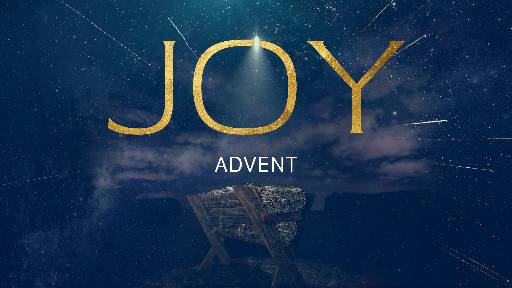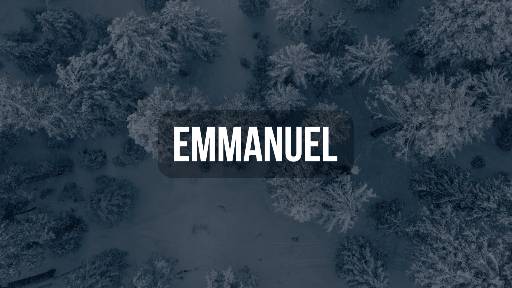-
I Will Be With You - Twelfth Sunday After Trinity
Contributed by Michael Blitz on Sep 8, 2025 (message contributor)
Summary: God doesn't call the Qualified, he qualifies the called. When God calls Moses, Moses is sure he is not up to the task. God assures Moses, that He will be with him.
I Will Be With You
Good MORNING. Our Old Testament lesson takes brings us one of the Bible’s most famous stories: Moses and the burning bush. Although, if you read through Exodus 3 and 4, it’s almost Moses vs. the Burning Bush. Moses finds a bush that is on fire, but doesn’t burn up, and then hears a voice calling from the flame. A voice telling Moses, a man who has spent decades thinking of himself as a worthless reject because of past stupid mistakes, that he will go and confront Ramses II, the most powerful king living on earth at the time.
That’s why WHEN God calls him, Moses doesn’t stand up and say, “Yes Lord!” Honest quality of the Bible vs. other “alleged” holy books that make their heroes perfect. He lets God know how unqualified he feels. And I can really associate with Moses here, and I assume I’m not the only one here.
Who am I? Why me? God, if they know my past, they’ll never listen to me. God, I don’t think I can do this Leading or Talking in front of people thing.
Every Christian is called for the work of the Gospel, but every one of us is a sinner. And like Moses, we can feel unqualified. How can I talk to them? There are lots of excuses. God’s answer is the same for us as Moses: I will be with you.
Quick rewind. Moses was Prince of Egypt, raised in Pharaoh’s palace, educated in the best schools. After accidently killing an Egyptian while trying to defend a Hebrew slave, Moses was rejected by both Egyptians (for murder) and the Hebrews who had no idea who he was. So he fled into the wilderness. In the desert at Mt. Sinai, also called Mt. Horeb, he met his future wife, and settled down for a number of years as shepherd working for his father-in-law Jethro.
Years of living in his head after his high position in Egypt left Moses feeling like a failure. A failure to his true parents and adopted parents. And it’s right there, in a mental and physical wilderness, that God shows up. God often calls the loudest not when we’re on the mountaintop of success, but when we’re in the wilderness.
So, Moses is out with the sheep when suddenly he sees something strange. A bush is on fire. Now that wouldn’t be strange, but the strange thing is, it’s not burning up. The flames are blazing, but the branches stay whole. Fire shows up all through the Bible as a sign of God’s presence: here, the Pillar of Fire that guided Israel in the wilderness, the tongues of fire that fall on the disciples at Pentecost.
There’s a poetic image here as well. The fact that the bush isn’t consumed is a picture of God’s mercy. Filled with God’s presence, but not destroyed. That’s how God uses us. If the holy God were to show up in all His blazing glory, neither the bush nor Moses would survive. But here, God comes down in a way Moses can bear, as a flame that doesn’t destroy.
As Moses approaches, God speaks: “Take off your sandals, the place where you are standing is holy ground.” Removing your shoes was a custom of reverence, and even today some cultures still remove their shoes before entering a place of worship. But for many of us, it’s also the first thing we do when we come home. Think about Moses’ life for a moment. He’s a man without a home. The Egyptians rejected him. The Hebrews rejected him. Even at Sinai, he considers himself a foreigner, he calls himself A stranger in a strange land.
But here—before God’s presence, he finally belongs. The ground he stands on is holy ground. He belongs because he is a Child of God.
Now comes the moment of calling. God says: “I have seen the misery of my people in Egypt. I have heard their cry. I know their suffering. And I am sending you, Moses, to bring them out of Egypt.”
And Moses’ first response: Who am I that I should go to Pharaoh? God, you’ve got the wrong guy. Not only am I unqualified, I’m a fugitive. I’m a shepherd, and a terrible speaker. You need someone better.”
And God’s answer: I will be with you. Notice what God doesn’t say. He doesn’t say, “Moses, don’t sell yourself short. The answer was in you all along! You’re really strong and smart.” He doesn’t give Moses a pep talk about believing in himself. God says: “This isn’t about you. It’s about Me. I will be with you.”
And yet, Moses keeps coming up with excuses:
What if they ask me Your name? What if they don’t believe me? I am slow of speech and tongue. And finally, Lord, please send someone else.

 Sermon Central
Sermon Central



